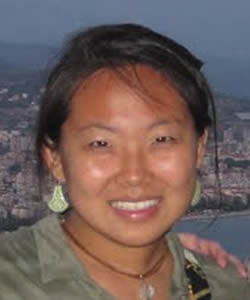Mustafa Kemal Atatürk has a remarkable fan base. Without fail there seem to be two ubiquitous symbols that are guaranteed to be on the wall of every store, home, and restaurant: the evil eye, a symbol that dates back to early Turkic shamanism, and a framed picture of the beloved leader, Atatürk. The physical manifestation of devotion to Atatürk represents his legacy in the hearts of the modern Turkish people. Atatürk was the founder of the modern Turkish state, following the division of Ottoman Empire after World War I. Atatürk led the Turkish nationalist and independence movement, and sought to create a modern and secular nation-state. Atatürk's reforms are still pervasive in Turkish society today and are the foundational beliefs of Kemalism, titled after Atatürk's original last name. Those who call themselves Kemalists are not the only group that admires Atatürk; Turkish people, as a whole, recognize that Atatürk is a major part of the reason why Turkey has progressed economically and politically throughout the twentieth century.
Atatürk has left an important legacy in the hearts of Turks and probably will continue to persist in the future generations. However, Turkey also has a strong history with Islam. In the Ottoman Empire, especially after 1516 and 1517 with the conquests of Syria and Egypt, respectively, the empire was composed dominantly of Muslims. The pervasiveness of Islam for the course of most of the Ottoman Empire's existence is evident in the empire's domestic politics and its relations with surrounding nations. The role of Islam in the area of modern-day Turkey is still vibrant in the people, of which 99 percent are Muslim, and in the cultural landscapes, such as the numerous mosques throughout Turkey.
My observations in Turkey have been more rigidly framed because of the nature of the McGhee Center's program. The program took us on a thorough and rigorous orientation of Istanbul and Ankara, the largest city and the capital city. Istanbul is a city known for many landmarks, many of which are mosques—the Aya Sofya, the Blue Mosque, and the Sulemaniye Mosque. Mosques are found everywhere throughout the city and make themselves known also by the calls to prayer that happen five times a day. Our time in Istanbul was also spent during the month of Ramadan, and our hotel was located near the Hippodrome, which was where the fast was broken everyday at sundown. My first days in Turkey were overwhelming—it seemed as though all of Istanbul, all 12 million people, were united in waking up before dawn to the sound of drums in the streets in order to eat before the sun rose, and in breaking the fast at sundown, which was basically a huge picnic on the Hippodrome every night. Islam has played a significant part in the history of the Anatolian region and still has a very active role in Turkish society.
On our orientation, we were able to visit and interact with some Turkish government officials. The current ruling party, the Justice and Development Party, is pro-Western with a strong desire for Turkey's entrance into the European Union, which is a reason for popular support. Entrance into the European Union would boost the local economy and thrust Turkey further as a world power. The party has been faced with criticism of being non-secular or having close ties with Islamists, however, and for more extreme secularists of Turkey, the ties with Islamism for their government are frightening. Atatürk was adamant about the creation of a secular state, and the idea of Islamism permeating into governance in the modern republic is not one that some are willing to tolerate.
The tension found between Islam and the modernization intents of Atatürk is found in Turkish political and cultural society more than 70 years after the founding of the modern republic. The devotion to Islam for many Turkish citizens as individuals may be difficult to balance with the secular ideals and goals of their national hero, Atatürk. On a macro level, the society is trying to present itself to Western countries, especially the European Union, as a progressive, modern, and in effect, a secular one. My observations in Turkey have allowed me to appreciate the unique situation in Turkey and have given me a better understanding of the Islam and governance. Ultimately, the relationship between Islam and government in Turkey speaks of the larger struggle that many governments, and individual people, of the world confront.

